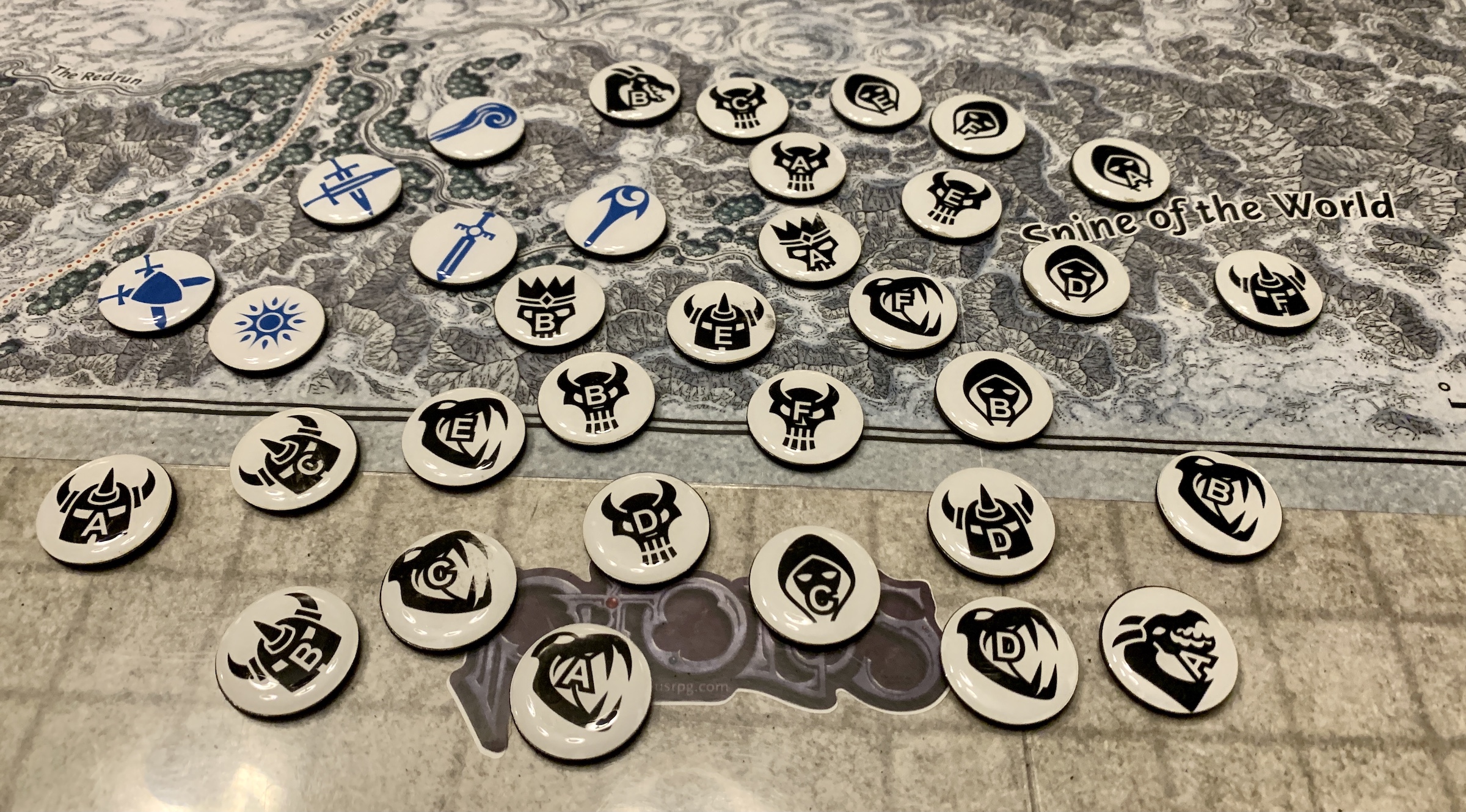These 2 Expensive GM Crutches are Actually Traps, I Have Alternatives
Ahoy there, welcome aboard. I’m feeling spicy today so it’s time to drop some meta disruptive truth bombs.
I’m absolutely swimming against the tide here, so some of you won’t agree with this post, and that’s A-OK because we’re still friends and one of us will change our mind eventually as we grow and become better GMs for it, and then we shall fondly look back upon this post from a position of supreme transcendence and inner harmony. Zen.
As it is written, shall it be so.
Lets start with defining terminology. What do I mean by crutches and traps?
Well, a crutch is simply something that you introduce to make a task easier, and you should - seeking crutches is 100% the right thing to do. For example, a GM screen is a crutch because it can give the GM helpful improv prompts and reminders for key rules.
A trap however is something that initially appears to be solely beneficial, but not only does it create a dependency, it also has a hidden detrimental effect on your game, such as a GM fudging dice rolls to help their players, leading to a game suffering for its lack of stakes or player agency (told you I was feeling spicy).
1) Miniatures
Minis are cool, I like to collect them, I like to paint them, I like to use them in miniature war games. I totally get the appeal here.
Why do we use them?
Minis allow the GM to relax their descriptions of monsters - you don’t need to give a massive description if players can just see the mini, right?
Minis allow us to demonstrate where the actor is on a battle map.
Minis look cool, they create more of a spectacle.
Why are they bad?
Minis are expensive, difficult to store, and take a long time to paint.
Minis tend to limit our encounters to the models that we have in our collection, and that we have brought with us to the game. This means that if we want to improv an encounter mid game that we don’t have minis for then we’ve got a problem.
It also means that players may see your minis before the encounter, and then know what’s coming.
When players pour hours of effort into a mini, that creates a conflict of interest for the GM. No one wants to be the a$$hole that kills the character that Billy has spent the last 2 weeks painstakingly preparing.
What is the alternative?
Tokens. Generic tokens. Sly flourish did a great service to the community with these and they work perfectly, because rather than needing a specific token for a goblin, you can use the hooded face token. Got a big brute? Cool, use the token in the armoured helmet. Being attacked by a group of beasts? Use the animal skulls.
Not only that, but each token within a group is lettered, so that players can say “I want to attack goblin C” instead of trying to work out which goblin they mean.
On top of this:
They’re robust.
Easy to store
Cheap and easy to replace
You don’t need many
They’re multi purpose
I’m planning on making and selling a set of my own soon, subscribe to the Mailer of Many Things, my monthly newsletter if you want to be kept up to date about when they’re available.
2) Automation Tools
When I was first starting out with 5e I found the character creation process so complicated that a tool like D&D Beyond was really useful as it took players through the process of character creation step by step, and did all the calculations for modifiers behind the scenes. Then the developers sold it to a company whose name might rhyme with Lizards Ate Your Toast, and the enshittification began.
But it’s not just D&D Beyond this applies to. Many digital toolsets such as virtual tabletops (VTTs) have these same issues whenever they have processes that script elements together.
Why do we use them?
Many processes in TTRPGs are complicated, scripted automation allows us to focus on the fun role play instead without burdening the players with having to understand the behind the scenes mechanics of the game.
They stop us forgetting about important mechanics.
Why are they bad?
They’re very expensive. At time of writing, D&D Beyond can cost over $70 for a monthly subscription over a single year.
If the GM wants to homebrew some new mechanical effects on the spot, these tools either do not allow for that, or they force the game to grind to a halt whilst the GM deciphers a complicated process to integrate their ideas into the system.
Heaven forbid if you trigger an automated action by mistake. Automation tools frequently script a string of effects into motion that need carefully unpicking. For example, if you mistakenly roll to fire a gun in Alien RPG, that might subtract ammo. If you miss, it may trigger a stress roll, which triggers a panic roll, which may fail, then that might automatically alter your PCs stats.
What is the alternative?
I don’t mean this to sound dismissive, but simply get everyone to learn how the game works so that they can perform the games processes manually.
You should use your first session to teach everyone the game and help them all build characters.
If the game has really obtuse processes, play a simpler game. “Complicated” rarely equates to “better”. In fact, complicated games are a sure sign of bad design. And I’m a poet and I didn’t know it.
Use game agnostic VTTs like Owlbear Rodeo which have a free tier, and do not contain scripted automations.
Conclusion
Phew! This is a longer post than I thought it’d be. I’ll discuss Player Facing Maps, Planned Outcomes, and Rule Expansion Books in a later post, this text will be linked if I’ve written it yet.
I hope these first two traps disguised as crutches have been eye opening for you, and that you’re able to kick the habit using the alternatives I’ve proposed. If you have additional alternatives, why not join the discussion on Bluesky?
Hey, thanks for reading - you’re good people. If you’ve enjoyed reading this, it’d be great if you could share it on your socials, and maybe think about subscribing to the Mailer of Many Things! Either way, catch you later.






